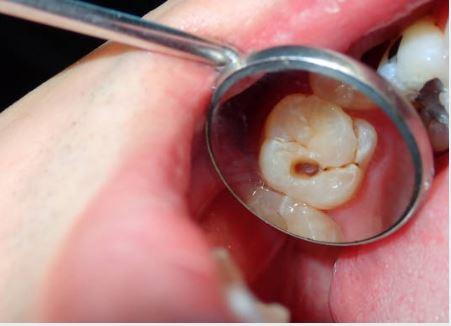
Understanding Tooth Decay: How Cavities Form and Prevention Strategies
Maintaining good oral hygiene is crucial for overall health, and one of the most common threats to dental health is tooth decay, also known as cavities. Understanding how cavities form and implementing preventive measures can help preserve your precious smile. Let’s delve into the science behind tooth decay and explore practical steps to keep your teeth healthy.
How Cavities Form:
Tooth decay is primarily caused by the interaction of bacteria, sugars, and acids in the mouth.
Here’s a breakdown of the process:
1. Bacterial Action: The mouth is home to various bacteria, including streptococcus mutans.
These bacteria thrive on sugars and starches from the food we eat, forming a sticky film called plaque on the teeth.
2. Acid Formation: When bacteria feed on sugars, they produce acids as byproducts. These acids erode the protective enamel. Leading to demineralization. This process weakens the tooth structure, making it more prone to decay.
3. Demineralization: With repeated acid attacks, minerals like calcium and phosphate are stripped away from the enamel, leading to demineralization. This process weakens the tooth structure, making it more prone to decay.
4. Cavity Formation: As demineralization progresses, small holes or cavities develop in the enamel. If left untreated, cavities can deepen, reaching the inner layers of the tooth, including the dentin and pulp, causing pain and potential infection.
Prevention Strategies:
Fortunately, tooth decay is largely preventable with good hygiene practices and healthy lifestyle choices. Here are some effective preventive measures:
1. Brushing Twice a Day: Regular brushing with fluoride toothpaste helps remove plaque and food particles, reducing the risk of decay. Aim to brush at least twice a day, preferably after meals.
2. Floss Daily: Dental floss reaches areas between the teeth ad along the gumline where a toothbrush can’t reach, removing plaque and preventing decay.
3. Limit Sugary Foods and Drinks: Minimize consumption of sugary and acidic foods and beverages such as sodas, candies, and juices. These can fuel bacterial growth and acid production, accelerating tooth decay.
4. Healthy Diet: Opt for a balanced diet rich in fruits, vegetables, lean proteins, and dairy products. Food high in calcium and phosphates promote remineralization and strengthen tooth enamel.
5. Fluoride Use: Fluoride is a mineral that helps prevent tooth decay and promotes enamel remineralization. Use fluoride toothpaste and consider fluoride treatments or mouth rinses as recommended by your dentist. Our office can also provide you with prescription strength fluoride toothpaste, which can further strengthen teeth.
6. Regular dental Check-ups: Schedule routine dental visits for professional cleanings and examinations. Your dentist can detect early signs of decay and provide timely interventions to prevent further damage.
7. Dental Sealants: Sealants are thin, protective coatings applied to the chewing surfaces of molars to prevent bacteria and food particles from accumulating in the deep grooves, reducing the risk of cavities.
By incorporating these preventive strategies into your daily routine and seeking professional dental care, you can safeguard your teeth against decay and enjoy a lifetime of healthy smiles. Remember, proactive dental care today can save you from painful dental problems tomorrow. Take charge of your oral health and make prevention a priority.
